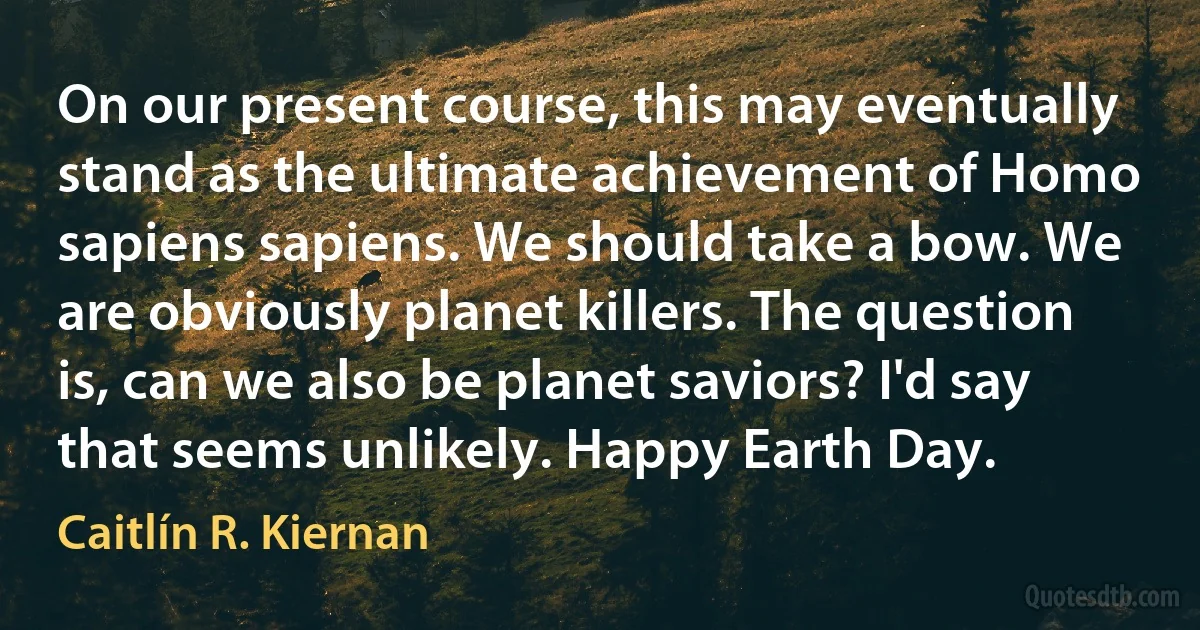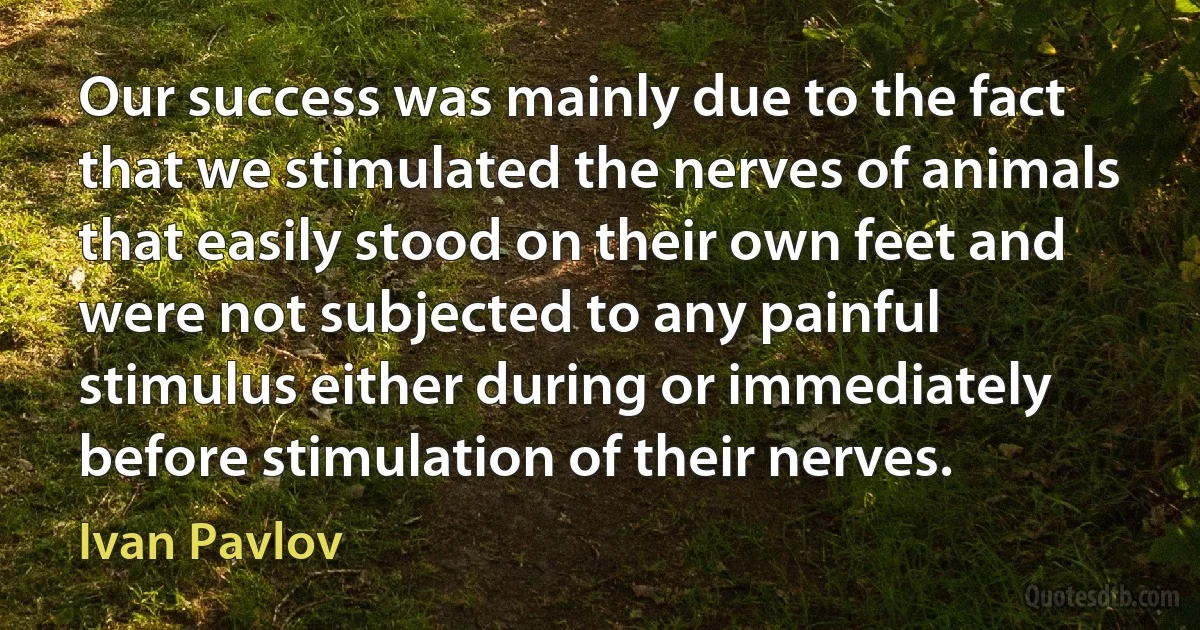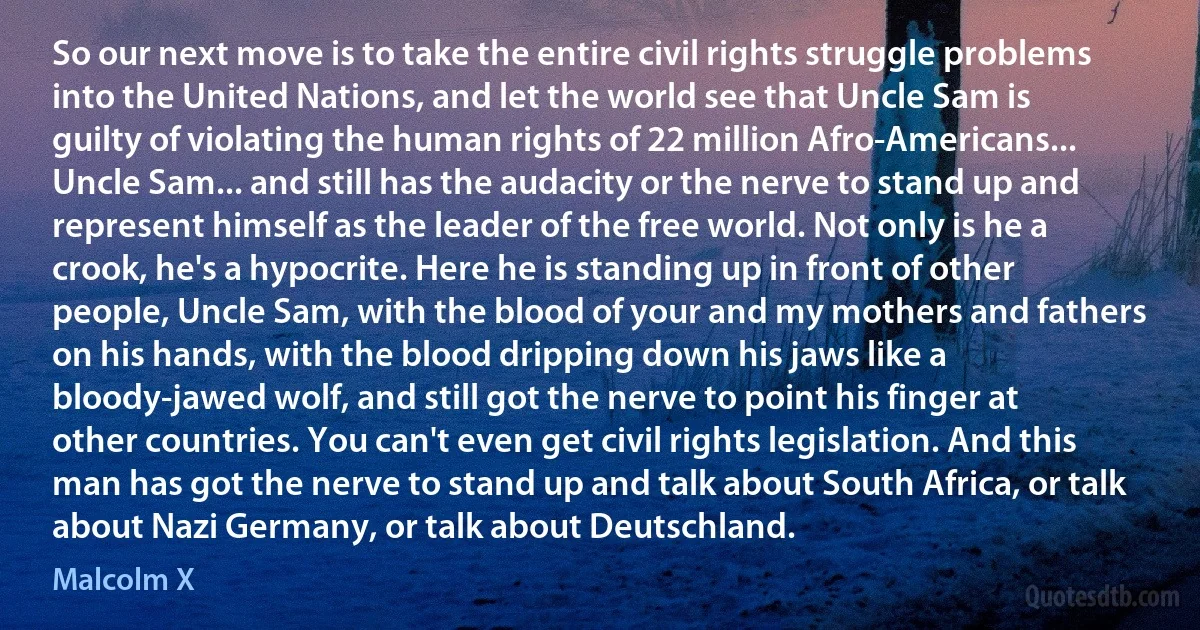Stand Quotes - page 94
He is the embodiment of greed, ambition, bigotry, and dislike of the marginalized. Of course, all that means is that he simply instantiates in a clear way the values of the GOP, but they don't like those being so out in the open! Trump is in fact the very product of what Republicans stand for: he's a monster they created, but now they don't like it. They want those values, but expressed sotto voce, and by a slicker candidate.

Jerry Coyne
It is almost as difficult to make a man unlearn his errors as his knowledge. Mal-information is more hopeless than non-information; for error is always more busy than ignorance. Ignorance is a blank sheet, on which we may write; but error is a scribbled one, on which we must first erase. Ignorance is contented to stand still with her back to the truth; but error is more presumptuous, and proceeds in the same direction. Ignorance has no light, but error follows a false one. The consequence is, that error, when she retraces her footsteps, has further to go, before she can arrive at the truth, than ignorance.

Charles Caleb Colton
In another moment I had scrambled up the earthen rampart and stood upon its crest, and the interior of the redoubt was below me. A mighty space it was, with gigantic machines here and there within it, huge mounds of material and strange shelter places. And scattered about it, some in their overturned war-machines, some in the now rigid handling-machines, and a dozen of them stark and silent and laid in a row, were the Martians-dead!-slain by the putrefactive and disease bacteria against which their systems were unprepared; slain as the red weed was being slain; slain, after all man's devices had failed, by the humblest things that God, in his wisdom, has put upon this earth.

H. G. Wells
In all the round world of Utopia there is no meat. There used to be. But now we cannot stand the thought of slaughter-houses. And, in a population that is all educated, and at about the same level of physical refinement, it is practically impossible to find anyone who will hew a dead ox or pig. We never settled the hygienic question of meat-eating at all. This other aspect decided us. I can still remember, as a boy, the rejoicings over the closing of the last slaughter-house.

H. G. Wells
So last January, with the beginning of a snowstorm in the air about me-and if it settled on me it would betray me!-weary, cold, painful, inexpressibly wretched, and still but half convinced of my invisible quality, I began this new life to which I am committed. I had no refuge, no appliances, no human being in the world in whom I could confide. To have told my secret would have given me away-made a mere show and rarity of me. Nevertheless, I was half-minded to accost some passer-by and throw myself upon his mercy. But I knew too clearly the terror and brutal cruelty my advances would evoke. I made no plans in the street. My sole object was to get shelter from the snow, to get myself covered and warm; then I might hope to plan. But even to me, an Invisible Man, the rows of London houses stood latched, barred, and bolted impregnably.

H. G. Wells
Life begins perpetually. Gathered together at last under the leadership of man, the student-teacher of the universe... unified, disciplined, armed with the secret powers of the atom, and with knowledge as yet beyond dreaming, Life, forever dying to be born afresh, forever young and eager, will presently stand upon this earth as upon a footstool, and stretch out its realm amidst the stars.

H. G. Wells
My doctor has warned me that my nerves will not stand any further strain... I have begun to have blackouts, in which my actions become automatic. Sometimes these periods last several hours.... I had one of these blackouts at an official luncheon in Paris recently, and startled guests by suddenly crowing like a cock....

James Bolivar Manson
Pat Gray: How would you handle a situation like the one that just developed in North Korea?Sarah Palin: Well, North Korea, this is stemming from a greater problem, when we're all sitting around asking, "Oh no, what are we going to do" and we're not having a lot of faith that the White House is going to come out with a strong enough policy to sanction what it is that North Korea's gonna do. So this speaks to a bigger picture that certainly scares me in terms of our national security policy. But obviously, we've got to stand with our North Korean allies. We're bound to by treaty. We're also bound to by-Steve Burguiere: South Korean.Palin: Yes, and we're also bound by prudence to stand with our South Korean allies, yes.

Sarah Palin
But when the example of the leader is not at hand and the herd must think for itself, it does so by means of clichés, pat words or images which stand for a whole group of ideas or experiences. Not many years ago, it was only necessary to tag a political candidate with the word interests to stampede millions of people into voting against him, because anything associated with "the interests" seemed necessary corrupt. Recently the word Bolshevik has performed a similar service for persons who wished to frighten the public away from a line of action.
By playing upon a old cliché, or manipulating a new one, the propagandist can sometimes swing a whole mass group emotions.

Edward Bernays
Let us assume that our problem is the intensification in the public mind of the prestige of a hotel. The problem for the public relations counsel is to create in the public mind the close relationship between the hotel and a number of ideas that represent the things the hotel desires to stand for in the public mind.

Edward Bernays
"The whole earth," said Pericles, as he stood over the remains of his fellow-citizens, who had fallen in the first year of the Peloponnesian War, - "the whole earth is the sepulchre of illustrious men." All time, he might have added, is the millennium of their glory. Surely I would do no injustice to the other noble achievements of the war, which have reflected such honor on both arms of the service, and have entitled the armies and the navy of the United States, their officers and men, to the warmest thanks and the richest rewards which a grateful people can pay. But they, I am sure, will join us in saying, as we bid farewell to the dust of these martyr-heroes, that wheresoever throughout the civilized world the accounts of this great warfare are read, and down to the latest period of recorded time, in the glorious annals of our common country there will be no brighter page than that which relates the Battles of Gettysburg.

Edward Everett



